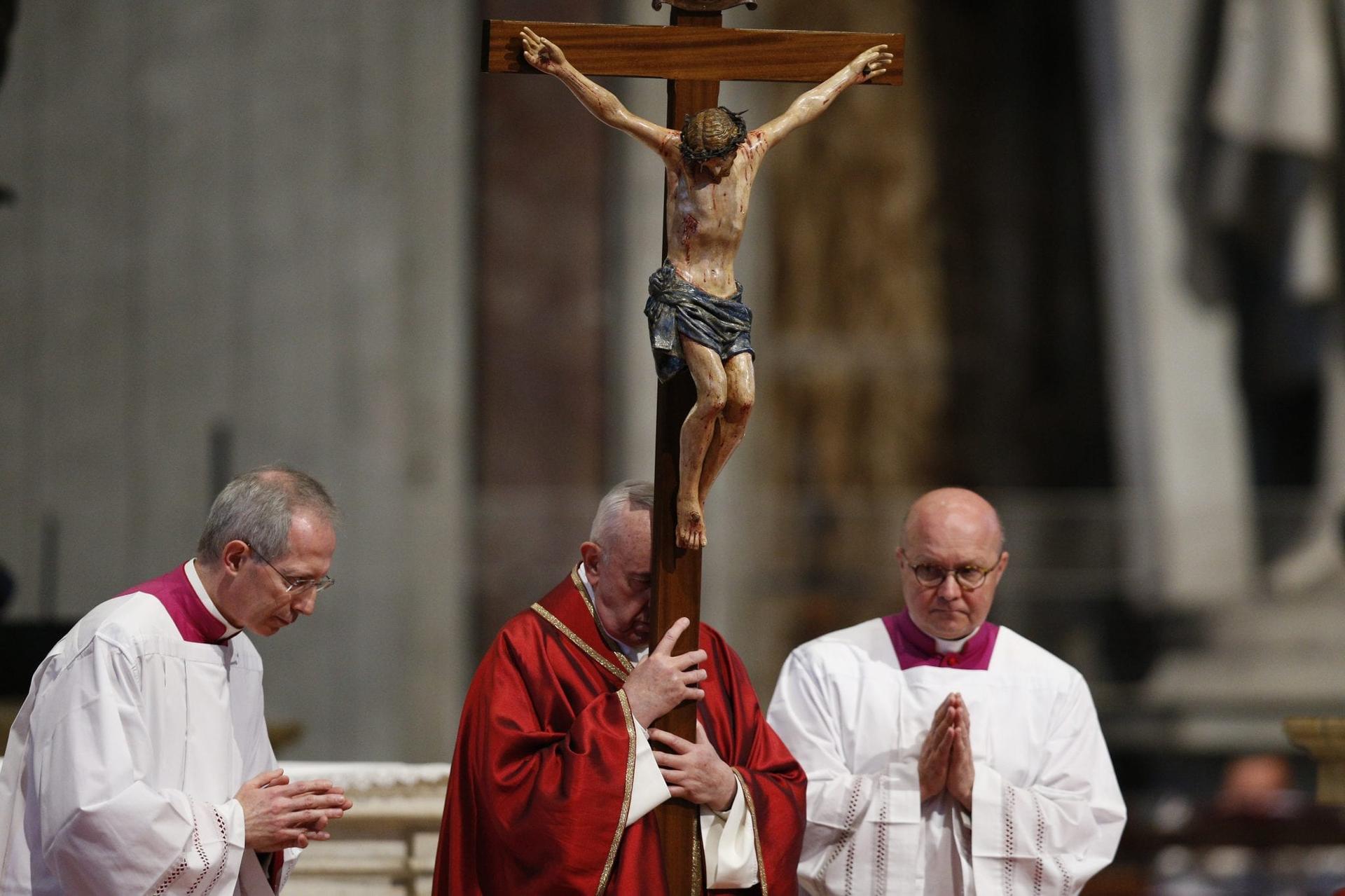ROSARIO, Argentina — Despite Easter being nearly a month away, the Vatican announced on Saturday that this year’s Holy Week celebrations led by Pope Francis will be held without the presence of the faithful.
The decision, which was made as a result of the global COVID-19 pandemic, marks an unprecedented move in modern times — yet leaving open the possibility of a public celebration of the Easter Sunday Mass.
The announcement was published on the website of the Holy See’s Pontifical Household, meaning the office that, among other things, coordinates the official audiences the pope has with heads of state. It is also the office that organizes most of the pope’s public schedule and distributes tickets for papal Masses, audiences and other ceremonies.
“The Prefecture of the Pontifical Household announces that, because of the current global public health emergency, all the Liturgical Celebrations of Holy Week will take place without the physical presence of the faithful,” reads the statement that was originally posted only in Italian, but later, also in English.
This means that the Palm Sunday Mass; the Chrism Mass on Thursday; the Mass of the Lord’s Supper on Thursday, which Pope Francis has always held in detention centers or with asylum seekers; Good Friday’s commemoration of the Lord’s Passion; and the Easter Vigil on Saturday, will all be celebrated by the Argentine pontiff without the faithful.
The notice also says that, at least until Sunday, April 12 — Easter Sunday — all of Pope Francis’ Wednesday general audiences and the Sunday Angelus prayer will be streamed online, with no faithful present in the square, as has been the case in recent weeks.
It remains unclear when the pope’s Masses and audiences will once again be opened to the public following that date.
Holy Week marks one of the high points of the most important liturgical seasons for Catholics around the world. Yet as the global death toll stemming from the coronavirus continues to rise and many countries have announced dramatic measures to curve the spread of this disease which has already killed over 5,000 people, it is possible that many dioceses will be forced to take similar extraordinary actions, inviting Catholics to join in the celebrations via internet, radio or TV.
Churches in Rome were temporarily closed earlier this week, but after Pope Francis’ intervention, it was decided that they could re-open. The faithful are invited to pray and take part in Eucharistic adoration, always maintaining a safe distance and following the recommended sanitary precautions, such as washing one’s hands and disinfecting surfaces with watered down alcohol.
All across Italy, however, the presence of the faithful at Mass has been banned to prevent further spread of the virus.
Follow Inés San Martín on Twitter: @inesanma
Crux is dedicated to smart, wired and independent reporting on the Vatican and worldwide Catholic Church. That kind of reporting doesn’t come cheap, and we need your support. You can help Crux by giving a small amount monthly, or with a onetime gift. Please remember, Crux is a for-profit organization, so contributions are not tax-deductible.










